 Daniel Berry
Daniel Berry
Daniel is an assistant professor in the Institute of Child Development and the Director of the BSL Lab. He earned an Ed.M. in Quantitative Methods and an Ed.D. in Human Development and Psychology from Harvard University. He subsequently trained as a post-doctoral research scientist in the Neuroscience and Education Lab at New York University and served as an Assistant Professor at the University of Illinois, prior to joining the ICD faculty.
Post-Doctoral Research Scientist:
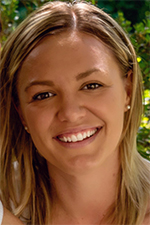 Nicole Perry
Nicole Perry
Nicole Perry is a postdoctoral research fellow at the Institute of Child Development. She received her Ph.D. in Human Development and Family Studies from the University of North Carolina at Greensboro in 2013. Her research aims to better understand the impact of early caregiving behaviors on the development of biobehavioral emotion regulation processes in infancy and early childhood, and identify the ways in which individual differences in emotion regulation contribute to mental health and social adjustment.
Graduate Students:
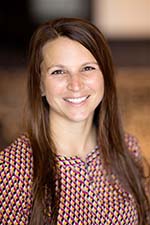 Keira Leneman
Keira Leneman
Keira received her B.A. in Psychology from the University of California, Davis in 2011, with minors in Philosophy and Political Science. She is currently a general developmental track Ph.D. student in the Institute of Child Development (ICD). Primary research interests surround understanding how chronic stress early in life impacts the development of physiological and behavioral self-regulation. Specifically, she is interested in investigating mechanisms of chronic stress by exploring physiological stress systems together in real time as flexible, dynamic systems with relations to behavioral measures of self-regulation.
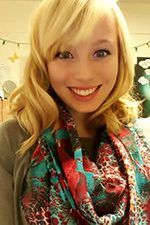 Alyssa Palmer
Alyssa Palmer
Alyssa graduated from The Pennsylvania State University in 2016 with a B.S. in Psychology focusing in neuroscience and minors in Biology and Sociology. Her research interests include the effects of childhood adversity on mental health, individual differences contributing to risk and resilience, emotion regulation, physiological reactivity and regulation, parenting, and interventions targeting those processes.
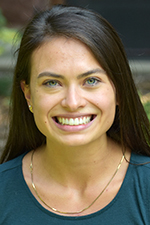 Isabella Stallworthy
Isabella Stallworthy
Isa Stallworthy is a National Science Foundation Graduate Research Fellow in the Developmental Science Ph.D. program at the University of Minnesota’s Institute of Child Development (ICD). After graduating from Middlebury College in 2015 with a B.A. in Neuroscience, she completed the two-year Donald J. Cohen Fellowship in Social Developmental Neuroscience at Emory University. Broadly speaking, she’s interested in the early development of social engagement systems in typical populations and in the context of autism. Her current research explores how early social visual engagement, contingent caregiving, and biosocial self-regulation intertwine and set the stage for more complex social interaction in infancy. She’s also interested in the processes by which vulnerabilities, such as poverty, chronic stress, and premature birth, shape early social interaction and self-regulation abilities.
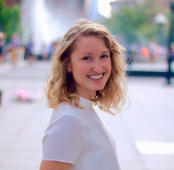 Meriah DeJoseph
Meriah DeJoseph
Meriah is a Developmental Psychology Ph.D. student at the University of Minnesota’s Institute of Child Development (ICD). She holds a B.S. in Cognitive Neuroscience from the University of California, San Diego (UCSD) and a M.A. in Psychology from Teachers College, Columbia University. Prior to joining ICD, she worked as a Lab Manager at New York University, where she coordinated various projects examining the long-term effects of poverty-related adversity on children’s self-regulation development. She hopes to continue this line of inquiry in graduate school while further exploring the neurobiological mechanisms linking cumulative poverty exposure and later child adjustment. She is especially interested in identifying protective mechanisms underlying resilience and translate this knowledge in ways that can be used to
inform prevention efforts.
Undergraduate Students:
Alumni:
Kalleigh Betz
PuiYii Goh
Kevin Ly
Beatrice Ng
Kalliopi Panagi
Dylan Tatham
Andreja Taylor
Maiyau Nancy Thao
Tara Viken
Rahwa Weldeabzghi

